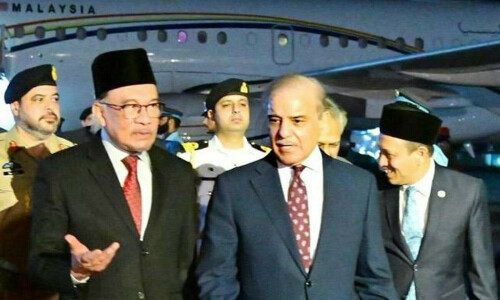ISLAMABAD: The National Commission on Human Rights (NCHR) has taken up the case of Muhammad Iqbal, a juvenile offender, and urged authorities to abstain from issuing his execution warrants.
It is worth mentioning here that Gujrat Jail authorities forwarded requests to issue his ‘black warrant’ to the Lahore High Court on June 30.
Muhammad Iqbal was just 17 years old when convicted of a fatal shooting in Mandi Bahauddin in 1999. Suspecting he was a juvenile, the prosecution requested that an ossification test be conducted, the results of which confirmed his minority. However, the court announced the death sentence as Juvenile Justice System Ordinance (JJSO), 2000 — which prohibits execution of a juvenile — could not be passed till that time.
His death sentence was upheld by the Lahore High Court on March 20, 2002 and his appeal subsequently dismissed by the Supreme Court on Sept 11 the same year.
Muhammad Iqbal was 17 years old when convicted of a fatal shooting in Mandi Bahauddin in 1999
A complaint was filed on Iqbal’s behalf by Justice Project Pakistan (JPP), a human rights organisation that provides legal representation to most vulnerable Pakistani prisoners, on June 23 before the NCHR, which held an urgent inquiry into the matter on Monday.
Officials from the home and prison departments were present and a letter of proceedings has been issued to the home department secretary, the registrar of the Lahore High Court and the Anti-Terrorism Court, Gujranwala.
Member of NCHR Chaudhry Muhammad Shafique, while talking to Dawn, said that the commission was concerned about the denial of appropriate relief due to which human rights were violated.
“So it was decided to accept the application and it has been directed to hold the process of execution as long as proper inquiry is held because it would be violation of Pakistan’s laws,” he said.
According to a statement issued by the JPP, Iqbal’s trial was conducted two years before the JJSO 2000 was passed.
It says that after Pakistan ratified the UN Convention on the Rights of the Child in 1990, the president of Pakistan issued a notification granting remission to those juvenile offenders whose death sentences had been confirmed prior to the enactment of the JJSO on the basis of an inquiry into their juvenility.
In fact, Iqbal was listed as one of the prisoners who would benefit from this notification. Despite this, his mercy petition was rejected in March 2016 and he has been on death row for well over half his life.
As Pakistan prepares to appear before the Human Rights Committee, the monitoring body of the International Covenant on Civil and Political Rights (ICCPR), on July 11, the issuance of execution warrants for a juvenile offender, such as Muhammad Iqbal, will have a detrimental impact on the country’s performance, the statement claims.
JPP Executive Director Sarah Belal said she welcomed the intervention by the NCHR to prevent the wrongful execution of a juvenile offender.
“The Pakistan government has previously stated its commitment to enforcing the prohibition against the execution of juveniles before the UN Child Rights Committee, and not issuing Iqbal’s warrant is the right step to that end,” she reminded.
Published in Dawn, July 4th, 2017












































